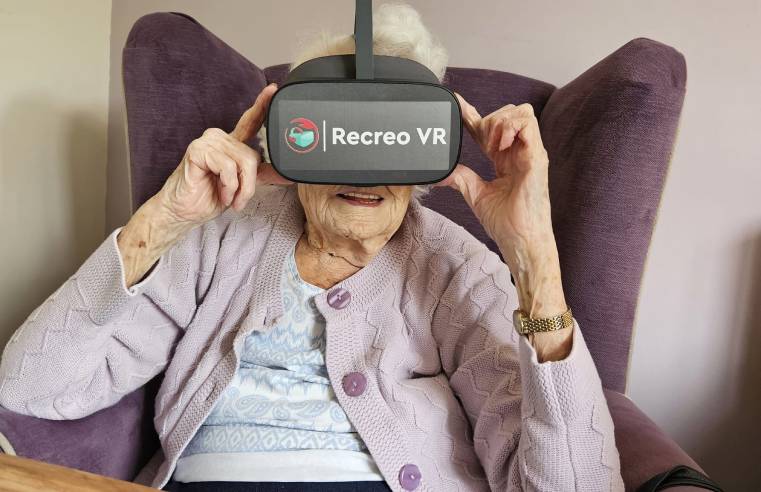A specially-designed mobile phone game can detect people at risk of Alzheimer’s, according to new research from the University of East Anglia.
Researchers studied gaming data from an app called Sea Hero Quest, which has been downloaded and played by more than 4.3 million people worldwide.
The game, created by Deutsche Telekom in partnership with Alzheimer’s Research UK, University College London (UCL), the University of East Anglia and game developers Glitchers, has been designed to help researchers better understand dementia by seeing how the brain works in relation to spatial navigation.
As players make their way through mazes of islands and icebergs, the research team are able to translate every 0.5 seconds of gameplay into scientific data.
The team studied how people who are genetically predisposed to Alzheimer’s disease play the game - compared to people who are not.
The results, published in the journal PNAS, show that people who are genetically at risk of developing Alzheimer’s disease can be distinguished from those who are not on specific levels of the Sea Hero Quest game.
The findings are particularly important because a standard memory and thinking test could not distinguish between the risk and non-risk groups.
Lead researcher Prof Michael Hornberger, from UEA’s Norwich Medical School, said: “Current diagnosis of dementia is strongly based on memory symptoms, which we know now are occurring when the disease is quite advanced. Instead, emerging evidence shows that subtle spatial navigation and awareness deficits can precede memory symptoms by many years.
“Our current findings show that we can reliably detect such subtle navigation changes in at-genetic-risk of Alzheimer’s disease healthy people without any problem symptoms or complaints. Our findings will inform future diagnostic recommendations and disease treatments to address this devastating disease.”
The team studied gaming data taken from 27,108 UK players aged between 50-75 - the most vulnerable age-group to develop Alzheimer’s in the next decade.
They compared this benchmark data with a smaller lab-based group of 60 people who underwent genetic testing.
In the smaller lab group, 31 volunteers carried the APOE4 gene, which is known to be linked with Alzheimer’s disease, and 29 people did not. Both lab groups were matched for age, gender, education and nationality with the benchmark cohort.
Genetic risk for Alzheimer’s is complicated. People (around one in every four) who have one copy of the APOE4 gene are around three times more likely to be affected by Alzheimer’s and develop the disease at a younger age.
‘Big data in spatial navigation – towards personalised cognitive diagnostics of ‘at-genetic-risk’ Alzheimer’s disease’ is published in the journal PNAS.
www.uea.ac.uk
RESEARCH FINDS MOBILE GAME CAN DETECT ALZHEIMER’S RISK

Published on 25/04/2019
Related News
Categories
- CQC ratings
- Care home news
- Care jobs
- Care planning
- Care sector awards
- Care sector events
- Care sector news
- Care staff
- Charity
- Cleaning & Hygiene
- Construction
- Dementia
- Disability
- Entertainment
- Finance
- Fitness
- Food & Drink
- Fundraising
- Furniture
- Health & Safety
- Healthcare
- Hospice & Palliative Care
- Hospitals
- Industry Comment
- Interiors
- Laundry
- Legal
- Leisure
- Medication
- Mental Health
- Mobility
- New appointments
- PPE
- Products
- Property
- Recruitment
- Relationships
- Research
- Safeguarding
- Security
- Services
- Social care
- Sustainability
- Technology
- Training
- Transport
- Uniforms
- Waste
- Wearables






















